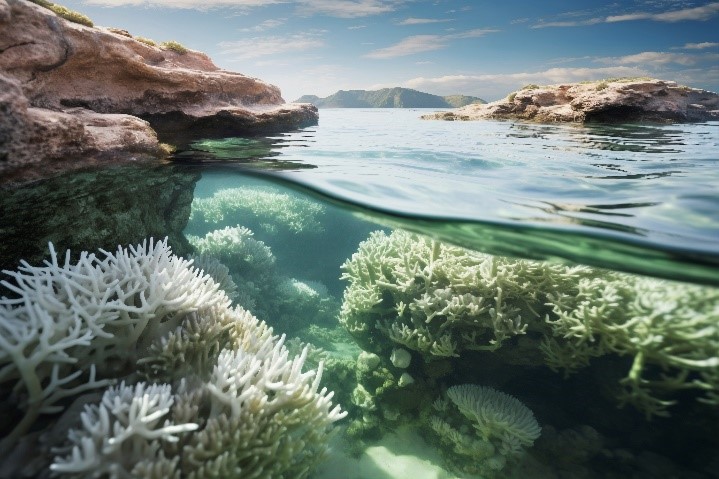
Climate Challenges: Turbulent Skies to Threatened Shores
- Climate change increases flight turbulence, threatens coastal islands and low-lying cities, and hampers worker productivity
- Marine Protected Areas (MPAs) conserve biodiversity and enhance resilience against climate change impacts
You might be surprised at how a warming climate could affect your travel experience in the coming years. For starters, scientists are expecting more turbulence. Last year, researchers found that severe clear-air turbulence (erratic air currents) over the North Atlantic increased by 55 per cent between 1979 and 2020. Warmer air – caused by carbon emissions trapping heat at high elevations – can cause abrupt changes in wind speeds and directions.
Rising global temperatures not only threaten the travel industry but pose a threat to the existence of small island nations such as Singapore and the Maldives. Low-lying coastal cities also struggle with flooding. Bangkok could see a third of the city being underwater by 2050, while about a fifth of Kolkata’s residents live in high-risk flood zones due to regular and heavy monsoon rains. At the same time, heat stress hampers the productivity of outdoor workers by dulling motor performance. How then can companies and countries build resilience in a rapidly changing world?
A World Bank study found that adapting to an expected 2°C increase by 2050 could cost up to US$100 billion per year – equivalent to one-fifth of Singapore’s annual GDP. Economic damage and increasing loss of human lives worldwide serve as a timely reminder that countries, companies, and communities need to be prepared for the realities of climate change.
Failing to protect against extreme weather events is ranked as the top long-term global risk by the World Economic Forum’s Global Risk Report 2024. The economic burden of extreme weather has surged to reach almost US$1.5 trillion from 2010 to 2019. The real figure is expected to be even higher due to underreporting of losses.

Australia saw a dip in tourism following the Great Barrier Reef’s fifth major bleaching event since 2016.
Photo: Freepik
Coastal nations like Singapore are fortifying coastlines with seawalls to combat rising sea levels. However, this approach has trade-offs as it often leads to losing natural habitats. The country recently announced a potential second marine park in the southern islands where rich marine life can be found. This is a key milestone as Marine Protected Areas (MPAs) are needed to help preserve the integrity of our oceans for future generations. As climate change alters water temperatures, sea levels and ocean acidity, MPAs support marine ecosystems that people and businesses depend on for food, climate regulation, and coastal protection.
Looking forward
At PCM, our environmental analysis helps us to identify and support companies that mitigate climate-related risks to their businesses. We emphasize the importance of integrating preventive, rather than reactive, management of these risks into their overall plans, policies, and products. This involves assessing potential vulnerabilities, implementing mitigation measures, and continuously monitoring environmental impacts to stay ahead of emerging threats. By prioritising sustainability and resilience, we ensure that companies are prepared for climate change impacts and positioned to thrive in the rapidly evolving global landscape.
Important Information
This material is provided by Phillip Capital Management (S) Ltd (“PCM”) for general information only and does not constitute a recommendation, an offer to sell, or a solicitation of any offer to invest in any of the exchange-traded fund (“ETF”) or the unit trust (“Products”) mentioned herein. It does not have any regard to your specific investment objectives, financial situation and any of your particular needs.
The information provided herein may be obtained or compiled from public and/or third party sources that PCM has no reason to believe are unreliable. Any opinion or view herein is an expression of belief of the individual author or the indicated source (as applicable) only. PCM makes no representation or warranty that such information is accurate, complete, verified or should be relied upon as such. The information does not constitute, and should not be used as a substitute for tax, legal or investment advice.
The information herein are not for any person in any jurisdiction or country where such distribution or availability for use would contravene any applicable law or regulation or would subject PCM to any registration or licensing requirement in such jurisdiction or country. The Products is not offered to U.S. Persons. PhillipCapital Group of Companies, including PCM, their affiliates and/or their officers, directors and/or employees may own or have positions in the Products. This advertisement has not been reviewed by the Monetary Authority of Singapore.
